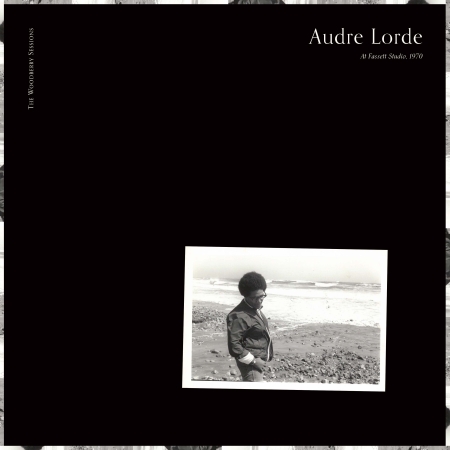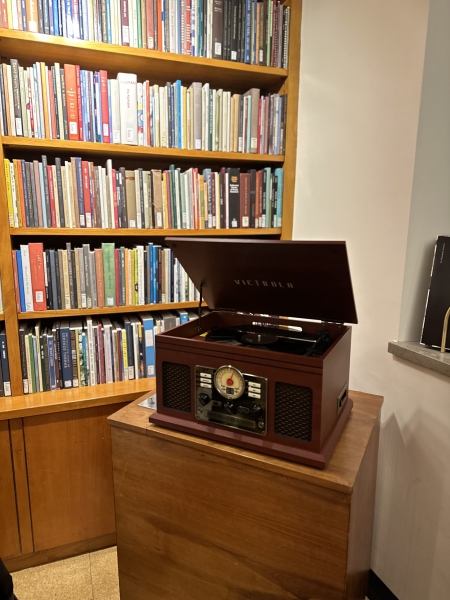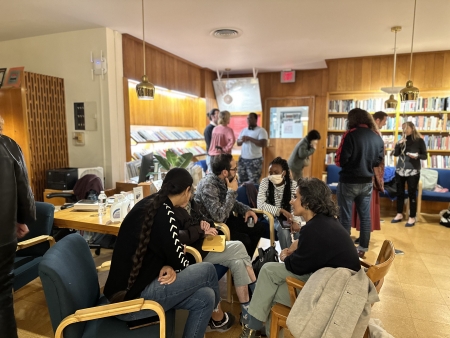
Tess Kelley, Harvard College ’23, shares her account of the recent Wax Poetic event at the Woodberry Poetry Room.
On May 15, 1970, an up-and-coming poet walked into a recording studio to recite selections of her work for Harvard University. She had a single published anthology to her name, hardly a sign of the acclaim to come her way in future decades. Her name: Audre Lorde.

More than fifty years later, listeners gathered in the Harvard Library’s Woodberry Poetry Room for a launch party in celebration of Audre Lorde at Fassett Studio, 1970. The record, produced in collaboration with Fonograf Editions, brings the early poetry of the self-professed “Black, lesbian, mother, warrior, poet” to life, in a way that only a poet’s own voice can.
The October event inaugurated the Woodberry Poetry Room’s “Wax Poetic” event series, putting modern-day poets in dialogue with authors from the room’s vast poetry archives. Tongo Eisen-Martin, Poet Laureate of San Francisco, swapped coasts for the night to kick off the event with a reading of his own poetry.
“A lot of God can happen in three seconds. Not much heaven though,” Eisen-Martin began with a recitation of one of his poems, “Four Walls.” He spun an introspective narrative of family ties and pragmatic persistence for the event’s rapt audience.

Eisen-Martin then introduced Lorde’s record, expressing his deep admiration for her “uncatchable kinetic mind.”
“She is my awareness of flight. Of finding the scriptures in open-air prisons,” he added, testifying to Lorde’s beautiful yet cutting words. Eisen-Martin finished his speech with one piece of advice: “Y’all prepare to bow down.”
Attendees then directed their attention to a record player. “How do you spell change?” Lorde began, weaving us a critique of a city’s power, greed, and oppression in her poem, “New York City 1970.” This early poem, written about a month before the recording and unpublished at the time, gave listeners a view into the life of 36-year-old Lorde. This version of the poet was living in Manhattan as a queer Black mother and was yet to fully hit her stride, according to Lorde biographer Alexis Pauline Gumbs in her contribution to the liner notes of the record.
After a collective playing of Lorde’s poetry, visitors were then invited to continue their listening at the Woodberry Poetry Room’s listening tables, cued up with the new record.
With attendees gathered together to absorb Lorde’s poetry, the event was meant to “reactivate” to the Woodberry Poetry Room’s original purpose, according to associate curator of the Woodberry Poetry Room, Mary Walker Graham. The room was first designed as a space of collective listening, featuring twice the listening tables it currently houses.

Organizers Graham and Christina Davis, curator of the Woodberry Poetry Room, structured the event not only to bring together two poets from different generations and backgrounds, but also to encourage collaborative listening both live and on record. “What do we gain by listening together?” Graham asked.
Scanning the room revealed visitors deep in introspection at the listening tables, lively conversation among friends, and people meeting for the first time, offering no single answer to her question.
Look out for another Wax Poetic event spring 2024, open to the public.